I have tried quite a few different breeds of sheep, but for one reason or another, usually because they are not independent, hardy and good foragers who thrive in a grass fed operation, I have chosen certain breeds. Then within these breeds, I have selected sheep that can manage their own parasite load and bred them to another who is the same, hoping one day to achieve a naturally pest resistant flock. Animals that constantly require deworming and interventions leave the flock rather sooner than later. Those that have not required to be dewormed or have remained healthy and strong and especially ewes who have lambed without problems and had multiples, stay to build the flock.
But, back to the fibre farm. The Fat Ewe Farm has sheep and goats. All the sheep are wool animals. There are sheep that shed their wool and they have more hair like goats, rather than wool like sheep. Man has bred sheep to require shearing and not naturally shed. At one time, in the distant past, all sheep naturally shed their winter wool to remain cool in the summer. Sheep that still do this are 'hair sheep' while those requiring shearing are 'wool sheep'. I only have wool sheep, but some of the goats on the farm are also fibre producing. The Angora goats produce a soft lustrous fibre called mohair. Unfortunately for the goats, man has constantly bred for improved fibre at the expense of natural instincts in the goat. I have one Angora goat, the only one I have had who was able to birth and mother her own babies. The other Angora goats that were here, were terrible mothers and were soon gone. The Angora was mated to cashmere producing goat. Cashmere is the downy undercoat and must be combed out as the animal begins to shed in the spring. The cross is a Cashgora and is a soft downy animal with white curly lustrous fibre. There are also a few Nigoras on the farm, a NIgerian Dwarf crossed with an Angora. The Nigoras have lovely spinnable fibre too, white and fluffy, but they will naturally shed, unlike Angoras who must be shorn.
The sheep I love are the Cotswolds. They have beautiful ringlets and develop into large docile friendly sheep.They can be coloured or white. This year, the farm has a new coloured Cotswold ram, Bob. He is old but I am hoping to get some fine babies from him this year and maybe next. I also love the Icelandics with their long double coated fleece. They are so pretty. The Jacobs have a single coat, but it is soft and fluffy and black and white. All those breeds are excellent independent foragers and they have required few interventions for deworming or illness. I did have some Icelandics that were not that way, but I think they lacked copper at a time when I was told and read that sheep should not have copper. Otherwise, I believe that they would have been just as hardy as the ones I have now. I have a bunch of Blue Faced Leicester cross sheep too. While the BFL sheep were not hardy at all in this area (too cold for their open fleece), their cross bred ewes are wonderful, with their beautiful fleece and hardy natures. A breed that came to the farm three years ago was the Tunis. There are quite a few Tunis/BFL cross sheep, which have beautiful fleece. The Tunis has a general poor grade fleece, but the crosses have greatly improved fleece.
So things are progressing. The sheep are very worm resistant, produce wonderful fleece and are a delight to me. I love to spend time watching them and talking to them, scratching a chin here and an ear there. They make my heart sing and I am grateful to be caring for them. Now, if I can only figure out a way to keep that beautiful fleece free of hay and stuff. That is a challenge.

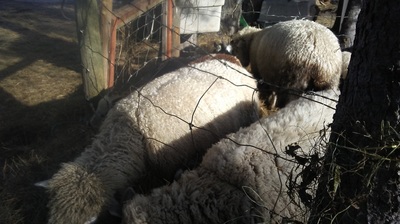

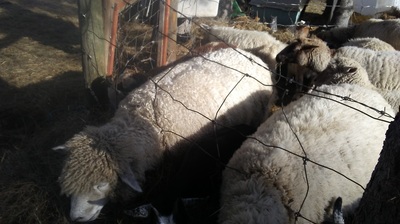
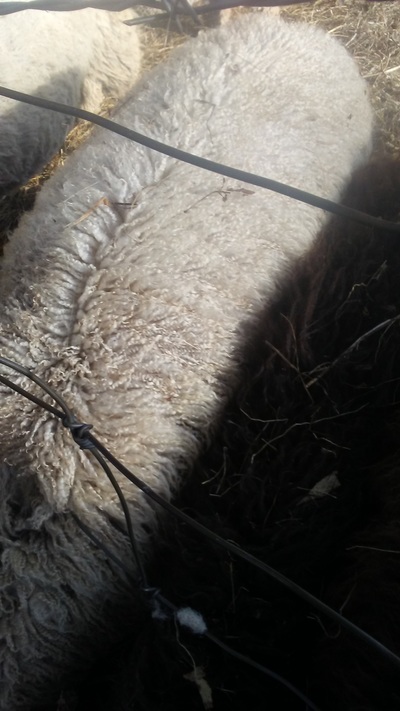
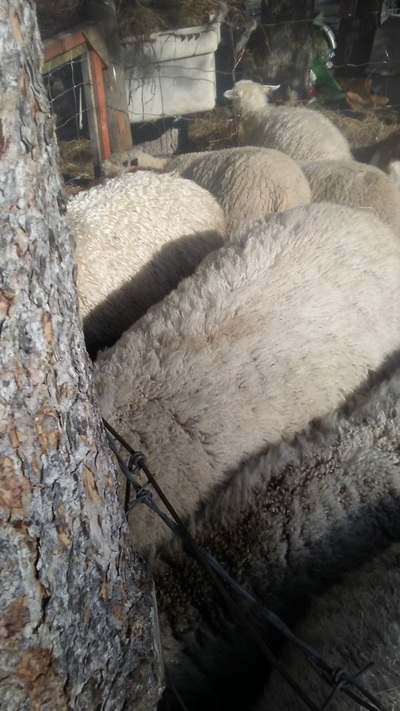
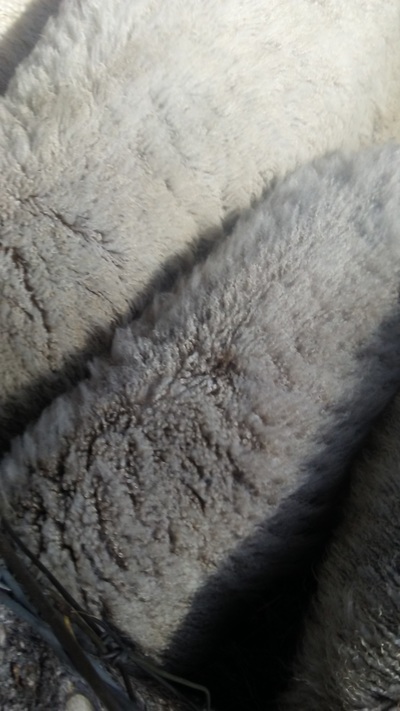
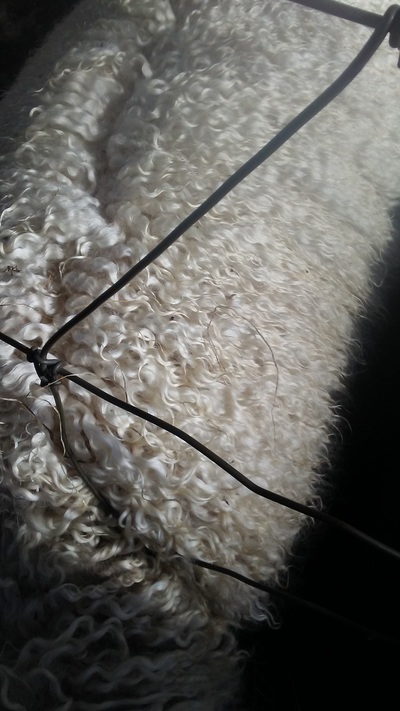
 RSS Feed
RSS Feed